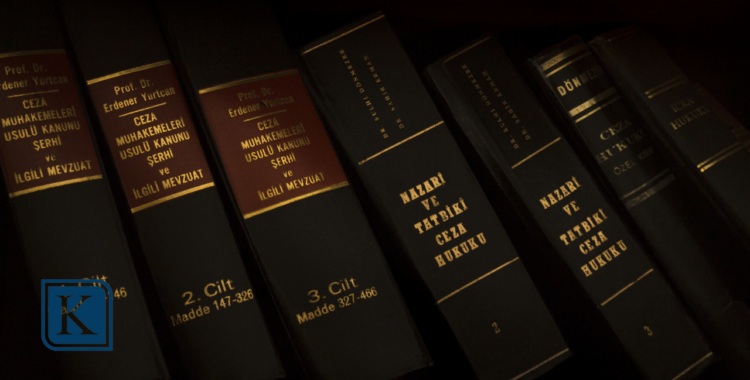The Centerline Becomes the Brightline in Colorado
Great Northern Properties v. Extraction Oil and Gas
On May 6, 2024, the Colorado Supreme Court issued its long-awaited opinion in Great Northern Properties v. Extraction Oil and Gas, concerning mineral ownership beneath a city street in Greely, Colorado. The issue at hand was to determine who held title to the mineral estate under a dedicated right-of-way when the previous land owner executed a conveyance of land abutting the right-of-way that was silent as to the mineral rights.
The answer to this question determines who is entitled to receive the oil and gas royalty payments for the minerals produced. The Court decided to solidify the long-standing common-law surface estate doctrine known as the “centerline presumption” as a brightline rule for mineral estates in Colorado.
Centerline Presumption
Under the “centerline presumption” doctrine, a conveyance of land abutting a highway or street is presumed to carry title to the center of that roadway, to the extent that the grantor has any interest therein, unless a contrary intent appears on the face of the conveyance. The need for clarification on whether the centerline presumption applies to mineral interests has only recently presented a problem. Until the advent of lateral wells it was not feasible to access oil, gas and other minerals in urban environments.
Traditionally, the Court has held that “where a grantor conveys a parcel off ground bounded by a street, his grantee takes title to the center such street, to the extent that the grantor has any interest therein, unless a contrary intent appears on the face of the conveyance.”
Procedural Posture & Case Overview
In 1974, a real estate developer sold all its land adjacent to 11th Street in Greely, Colorado, but the deeds were silent as to the mineral rights. Forty years later, the developer conveyed whatever interest it had in the minerals to Great Northern Properties, LLLP (“GNP”). That same month, GNP brought a CRCP 105 action to quiet title to the mineral estate under the relevant section of 11th Street. Extraction Oil and Gas, Inc., et al. (“Extraction”), the respondents, owned several leases which it had taken from the owners of all parcels abutting the relevant section of 11th Street and from GNP. The leases permitted Extraction to drill and produce oil and gas regardless of who owned the mineral estate; and GNP filed suit to determine to whom Extraction was required to pay royalties.
In 2019, Extraction filed a motion for a determination of a question of law pursuant to CRCP 56(h), arguing that the centerline presumption applied and the owners of the parcels abutting 11th Street owned the mineral rights beneath 11th Street to the road’s centerline. The district court agreed with Extraction’s contention that the centerline presumption could be applied to a conveyance of the mineral estate beneath a right-of-way and the abutting landowners owned the minerals to the centerline of 11th Street. The court of appeals affirmed but also concluded that the centerline presumption should not apply if the grantor retained ownership of any property abutting the right-of-way. GNP subsequently petitioned the Colorado Supreme Court for certiorari review.
Colorado Supreme Court Decision
The Supreme Court of Colorado ultimately affirmed the court of appeals’ decision that a conveyance of land abutting a right-of-way is presumed to carry title to the centerline of both the surface and mineral estates beneath a dedicated right-of-way of the owners of land abutting said right-of-way. The Court, however, disagreed with the court of appeals’ conclusion that the centerline presumption cannot apply if a grantor retains ownership of any property abutting the subject right-of-way, thus affirming in part and reversing in part. The Court noted that this additional element would place an undue burden on a landowner litigating a case such as the one at hand.
As a result of the Court’s decision, the centerline presumption applies if the party claiming ownership to land abutting a dedicated right-of-way establishes that the grantor (1) conveyed ownership of a parcel of land abutting a right-of-way; (2) owned the land in fee simple (as to the surface and minerals) underlying the right-of-way at the time of conveyance; and (3) the conveyance does not manifest contrary intent on its face.
Analysis & Implications
The Court’s holding simplifies the analysis in determining mineral owners and clarifies the range of parties with a claim on royalties. Furthermore the Court stated that there is well-established caselaw recognizing that a general conveyance of land, without any mineral reservation, passes title to both the surface and the underlying minerals. Avoiding a flood of litigation over minute royalty payments was one of the Court’s main goals in adopting this brightline rule. Justice Richard L. Gabriel of the Colorado Supreme Court expressed concern that if the Court did not adopt the centerline presumption, there would be legal fallout. Grantors, or their successors, would flood the courts in order to seek disgorgement of royalties obtained by numerous landowners in the same fashion as GNP.
Conclusively, this case, resulting from GNP’s quiet title action, should provide Colorado lessees with clarity as to who they must remit royalties to. This decision should permanently dissuade companies like GNP from purchasing mineral interests beneath rights-of-way before ascertaining whether or not the mineral rights were expressly reserved by the grantors of abutting property.
Kuiper Law Firm, PLLC provides legal services for all aspects of oil and gas operations, including oil, gas, & mineral leases. We will continue to monitor any updates on this case law. If you have any questions about the information in this article or how it may affect your operations, please do not hesitate to contact us.

